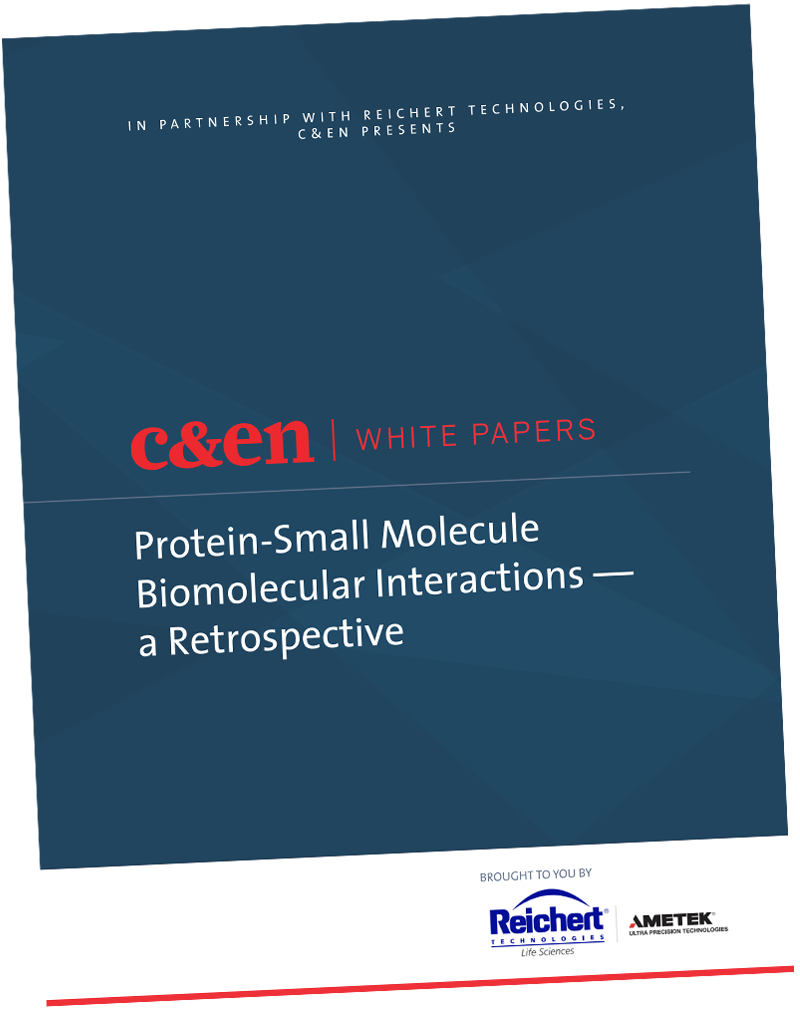

Surface Plasmon Resonance (SPR) is an invaluable technique that generates information rich data for a variety of biomolecular interactions. Researchers can utilize SPR to understand biological pathways and to develop and characterize a range of potential therapeutics to treat disease and illnesses. These interactions include those occurring with and between the major classes of biological macromolecules along with small molecules or drugs.
This article is focused solely on using SPR to study biomolecular interactions involving small molecules binding to proteins. To provide key information about these interactions, many researchers rely on SPR, which is a widely used technique for the determination of kinetics and affinity. This type of experiment is often carried out to aid in the development of small molecules as potential therapeutics for disease. This white paper highlights some articles that researchers have published using Reichert’s SPR systems for investigating low molecular weight molecules interacting with proteins.
- SPR can play a pivotal role in therapeutics development with the characterization of small molecule interactions with proteins.
- Reichert SPR systems have been implemented in a variety of drug discovery research applications quantifying small molecule-protein interactions.
- Reichert SPR systems provide a comprehensive characterization of biomolecular interactions (i.e., kinetics, affinity, thermodynamics) including small molecule-protein.

Copyright © 2026 American Chemical Society | 1155 Sixteenth Street NW | Washington, DC 20036 | View our Privacy Policy